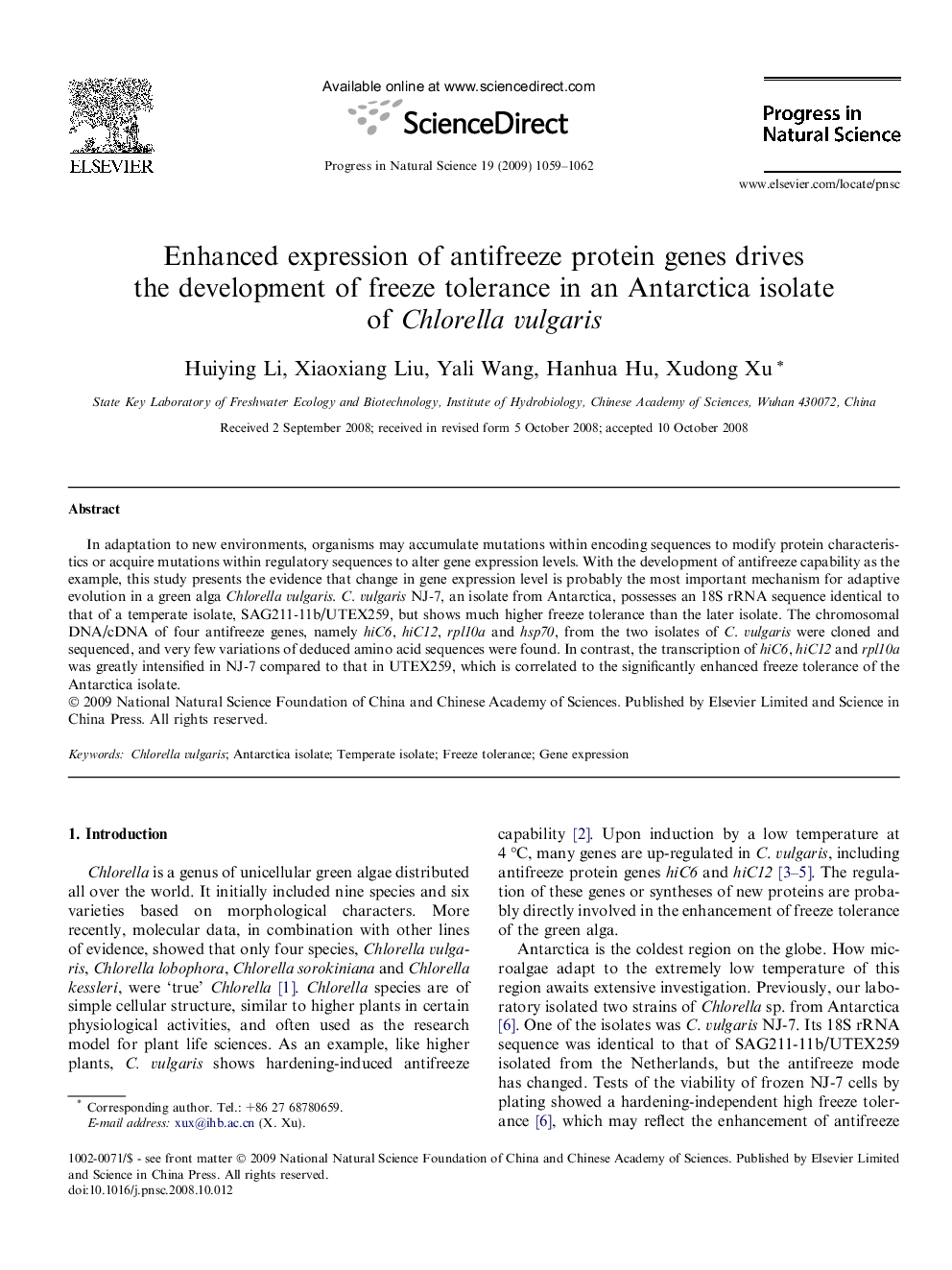| Article ID | Journal | Published Year | Pages | File Type |
|---|---|---|---|---|
| 1548733 | Progress in Natural Science: Materials International | 2009 | 4 Pages |
In adaptation to new environments, organisms may accumulate mutations within encoding sequences to modify protein characteristics or acquire mutations within regulatory sequences to alter gene expression levels. With the development of antifreeze capability as the example, this study presents the evidence that change in gene expression level is probably the most important mechanism for adaptive evolution in a green alga Chlorella vulgaris. C. vulgaris NJ-7, an isolate from Antarctica, possesses an 18S rRNA sequence identical to that of a temperate isolate, SAG211-11b/UTEX259, but shows much higher freeze tolerance than the later isolate. The chromosomal DNA/cDNA of four antifreeze genes, namely hiC6, hiC12, rpl10a and hsp70, from the two isolates of C. vulgaris were cloned and sequenced, and very few variations of deduced amino acid sequences were found. In contrast, the transcription of hiC6, hiC12 and rpl10a was greatly intensified in NJ-7 compared to that in UTEX259, which is correlated to the significantly enhanced freeze tolerance of the Antarctica isolate.
